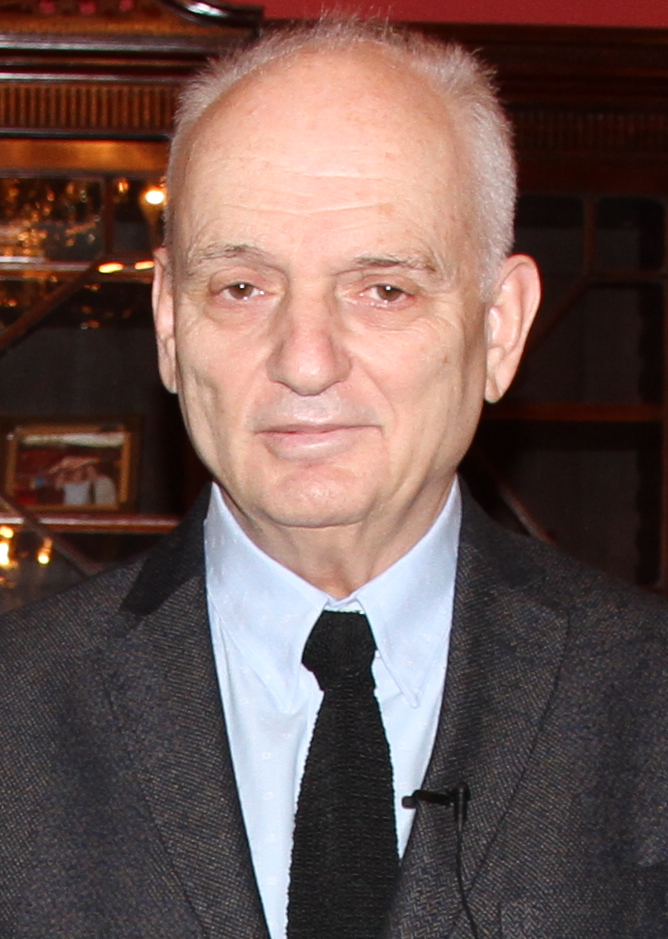What jew david chase did is no different than what jew larry david did by urinating on a picture of Christ
David Chase is not Jewish. The Brave AI will tell you he his Jewish, but only confusing him with David T. Chase, founder of Chase Enterprises, who is some sort of Jew, rich by inheritance.
I had accidentally skipped this comment, but I think it's worth responding to. Boomers are the most "West"-pilled people among the European people and they haven't been presented with any sort of credible orthodoxy in Catholicism. I almost have more respect for Irish-Americans who turned against the Church than Gaffigan-type guys who remain in it and simply ignore incongruent aspects because they like the aesthetic and think that Jesus, overall, was sort of a good guy. That doesn't imply they are being double-faced or maliciously spreading Antichristian propaganda. They behave like people who feel back-stabbed and disappointed by the Church, which I think is a genuine feeling they have. My German, Catholic-worker granddad left the Church in the aftermath of Vat II excesses and the abuse scandals. Whether or not the position he ended up with is besides the point, but that's how he genuinely felt.
I also don't like the comparison between DiCesare, who created a great drama about the collapse of family by the loss of the values they received by tradition, and Larry David, who has never been funny, will never be funny, and only boomers and pretentious millennials like his comedy.
Larry David's output is obnoxious and show why, by and large, Jews aren't very popular comedians, contrary to popular opinion
(the only top one you could name would be Louis CK, who grew up with his Irish Catholic mom in Boston and only started leaning into his Judaism after getting "cancelled". His Madison Square Garden appearance was a complete mess, and it seemed as if he had suddenly turned into an out-of-touch Jewish boomer from Brooklyn who absolutely doesn't understand how the goyim think, so he has to go back to his old material from when he still lived with them. His best time was when he played the depressed, lapsed-Catholic 40+ divored Dad, which is a topic only Christians feel broken up about).
All David (and Seinfeld and multiple other) does is present a socially awkward situation from a dissociated perspective, then comment on it with what I call "destructive analysis" ( a term I think people would find enlightening when discussing Jewish cultural phenomena, it's seemingly regular analysis but only serves to destroy what's there, akin to Talmudic dialectics aka pilpul) and then superimposes his own hateful, selfish attitude on it. That's it. That's every single episode of it and dumb pretentious goyim gobble it up uncritically because they've been taught that it's part of their urbanite pop-culture education. I wouldn't be surprised if Chinese universities were already looking and Seinfeld and Larry David in order to educate themselves as to the quirks of the Talmudic mind. Anyway, the point is, that's a far cry from the Sopranos.
Chase's work stands on its own feet. It has depth, it has honestly, and it's not afraid of leaving ambivalence in a scene, for the benefit of the thinking audience. Most importantly, it has love. Tony's decline leads to his more than deserved end. Compare that to an actual purely Jewish series like Californication, where yes, bad deeds have consequences, but the consequences are usually more about being misunderstood and in the end, the halfbreed rides into the sunset with the schickse he ruined for years.
Chase does have a tendency of including pretentious intellectual excursions in the series, but as opposed to Seinfeld, David or Kubrick, he never completely descends into nihilist bragging, which would be the Talmudic way to go.. I liked the way he dealt with religion very much, because it's a thoughtful illustration of how boomers, most likely including himself, feel in the aftermath of Vat II and Global Americanism.
Boomers aren't knowingly pushing propaganda for the most part, they just drank the cool aid.


